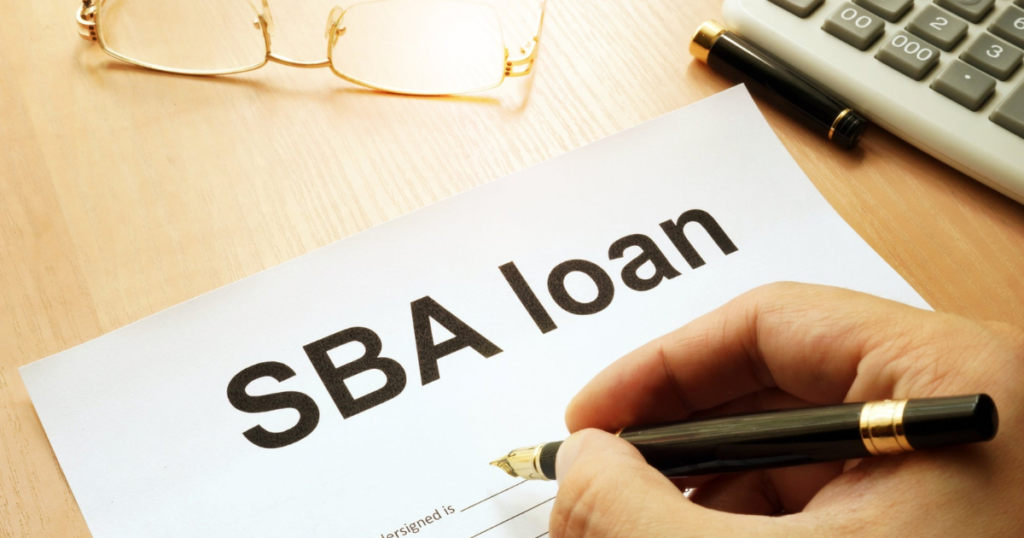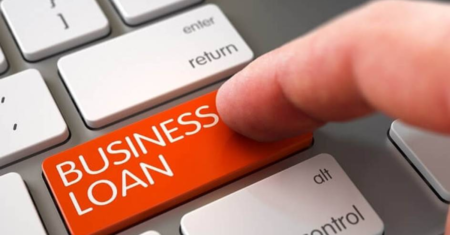
SBA loans are a type of financing for small businesses that are backed by the U.S. Small Business Administration (SBA). The SBA does not lend money directly to small businesses, but rather guarantees a portion of the loans made by its partner lenders, such as banks, credit unions, and alternative lenders. This reduces the risk for lenders and makes it easier for small businesses to access capital.
SBA loans can be used for various purposes, such as starting or expanding a business, purchasing or repairing fixed assets, refinancing existing debt, or recovering from a declared disaster. SBA loans offer competitive terms, such as low interest rates, long repayment periods, flexible eligibility requirements, and lower down payments. Some SBA loans also come with counseling and education support to help small businesses succeed.
Related articles
1- When is open enrollment for health insurance 2024
2- Health Insurance: Everything You Need to Know
3- What and Who Can Apply for Nations Benefits
4- Learn Here How to Apply SSDI Benefits
There are different types of SBA loans, each with its own features and benefits.
Some of the most common SBA loan programs are:
- 7(a) loans: These are the most popular and versatile SBA loans, which can be used for almost any business purpose. They have a maximum loan amount of $5 million and a maximum repayment term of 10 years for working capital and 25 years for fixed assets. The SBA guarantees up to 85% of loans of $150,000 or less and up to 75% of loans above $150,000.
- 504 loans: These are designed for purchasing or improving major fixed assets, such as real estate, buildings, machinery, or equipment. They have a maximum loan amount of $5.5 million and a maximum repayment term of 10 or 20 years, depending on the asset. The SBA guarantees up to 40% of the loan amount, while another 50% is provided by a certified development company (CDC) and the remaining 10% is contributed by the borrower.
- Microloans: These are the smallest SBA loans, which provide up to $50,000 for starting or expanding a business. They have a maximum repayment term of six years and an average interest rate of 8% to 13%. The SBA does not guarantee microloans, but rather provides funds to intermediary lenders, such as nonprofit organizations or community development institutions, who then lend to small businesses.
- Disaster loans: These are available for businesses and homeowners who have suffered physical or economic damage due to a declared disaster, such as a hurricane, flood, fire, or pandemic. They have a maximum loan amount of $2 million and a maximum repayment term of 30 years. The interest rate varies depending on whether the borrower has credit available elsewhere.
To apply for an SBA loan, you need to find a lender that participates in the SBA loan program. You can use the Lender Match tool1 on the SBA website to find lenders in your area that offer SBA loans. You will also need to prepare a business plan and provide financial statements, tax returns, personal information, and other documents that demonstrate your business’s viability and creditworthiness. The lender will review your application and determine if you qualify for an SBA loan. If approved, the lender will disburse the funds and help you manage your loan repayment.
SBA loans are one of the best options for small businesses that need funding but have difficulty obtaining conventional loans. By partnering with the SBA, lenders can offer more favorable terms and conditions to small businesses that meet the eligibility criteria. If you are interested in learning more about SBA loans or finding a lender that suits your needs, you can visit the Funding Programs page2 on the SBA website or contact your local SBA district office.
The time it takes to get approved for an SBA loan depends on the type of loan you apply for, the lender you work with, and the completeness of your application. According to some web sources, here are some estimates of the approval times for different SBA loan programs:
- SBA 7(a) loans: These are the most popular and versatile SBA loans, which can be used for almost any business purpose. They have a maximum loan amount of $5 million and a maximum repayment term of 10 years for working capital and 25 years for fixed assets. The SBA guarantees up to 85% of loans of $150,000 or less and up to 75% of loans above $150,000. The approval time for these loans can range from two to three months, depending on the lender and the complexity of the application12.
- SBA 504 loans: These are designed for purchasing or improving major fixed assets, such as real estate, buildings, machinery, or equipment. They have a maximum loan amount of $5.5 million and a maximum repayment term of 10 or 20 years, depending on the asset. The SBA guarantees up to 40% of the loan amount, while another 50% is provided by a certified development company (CDC) and the remaining 10% is contributed by the borrower. The approval time for these loans can be as short as 30 days, but it may vary depending on the CDC and the appraisal process2.
- SBA Express loans: These are a subset of SBA 7(a) loans that offer a faster turnaround time for businesses that need urgent financing. They have a maximum loan amount of $350,000 and a maximum repayment term of seven years. The SBA guarantees up to 50% of the loan amount. The approval time for these loans can be as fast as 36 hours from the SBA, but it may take longer for the lender to process and disburse the funds123.
- SBA Microloans: These are the smallest SBA loans, which provide up to $50,000 for starting or expanding a business. They have a maximum repayment term of six years and an average interest rate of 8% to 13%. The SBA does not guarantee microloans, but rather provides funds to intermediary lenders, such as nonprofit organizations or community development institutions, who then lend to small businesses. The approval time for these loans can take up to 90 days, depending on the intermediary lender and the availability of funds13.
- SBA Disaster loans: These are available for businesses and homeowners who have suffered physical or economic damage due to a declared disaster, such as a hurricane, flood, fire, or pandemic. They have a maximum loan amount of $2 million and a maximum repayment term of 30 years. The interest rate varies depending on whether the borrower has credit available elsewhere. The approval time for these loans can take around five weeks, but it may be longer if there is a high volume of applications or if additional information is required1.
To apply for an SBA loan, you need to find a lender that participates in the SBA loan program. You can use the Lender Match tool on the SBA website to find lenders in your area that offer SBA loans. You will also need to prepare a business plan and provide financial statements, tax returns, personal information, and other documents that demonstrate your business’s viability and creditworthiness. The lender will review your application and determine if you qualify for an SBA loan. If approved, the lender will disburse the funds and help you manage your loan repayment.
SBA loans are one of the best options for small businesses that need funding but have difficulty obtaining conventional loans. By partnering with the SBA, lenders can offer more favorable terms and conditions to small businesses that meet the eligibility criteria. However, you should be aware that applying for an SBA loan can take longer than other types of financing, so you should plan ahead and be patient with the process.
SBA loans are a type of financing for small businesses that are backed by the U.S. Small Business Administration (SBA). The SBA does not lend money directly to small businesses, but rather guarantees a portion of the loans made by its partner lenders, such as banks, credit unions, and alternative lenders. This reduces the risk for lenders and makes it easier for small businesses to access capital.
To qualify for an SBA loan, you need to meet some eligibility requirements set by the SBA and the lender. These requirements may vary depending on the type of loan you apply for, but in general, they include:
- Being a for-profit small business that operates in the U.S. or its territories123
- Being small under the SBA size standards, which are based on your industry, number of employees, and annual revenue12
- Not being a type of ineligible business, such as gambling, lending, life insurance, religious, or political organizations12
- Having a sound business purpose and a viable business plan12
- Having a reasonable ability to repay the loan and a good credit history123
- Having invested your own time or money into the business12
- Not having any outstanding tax liens, bankruptcies, foreclosures, charge-offs, or settlements in the past three years3
- Being up-to-date on any government-related loans, such as student loans or mortgages3
- Being a U.S. citizen or a lawful permanent resident who is at least 21 years old3
If you meet these eligibility requirements, you can find a lender that participates in the SBA loan program by using the Lender Match tool on the SBA website1. You will also need to provide some documents that demonstrate your business’s financial situation and creditworthiness, such as:
- Business and personal tax returns
- Business and personal financial statements
- Business plan and projections
- Business legal documents, such as licenses, leases, contracts, etc.
- Collateral information, if applicable
The lender will review your application and determine if you qualify for an SBA loan. If approved, the lender will disburse the funds and help you manage your loan repayment. SBA loans offer competitive terms, such as low interest rates, long repayment periods, flexible eligibility requirements, and lower down payments. Some SBA loans also come with counseling and education support to help small businesses succeed.
About the Author






0 Comments